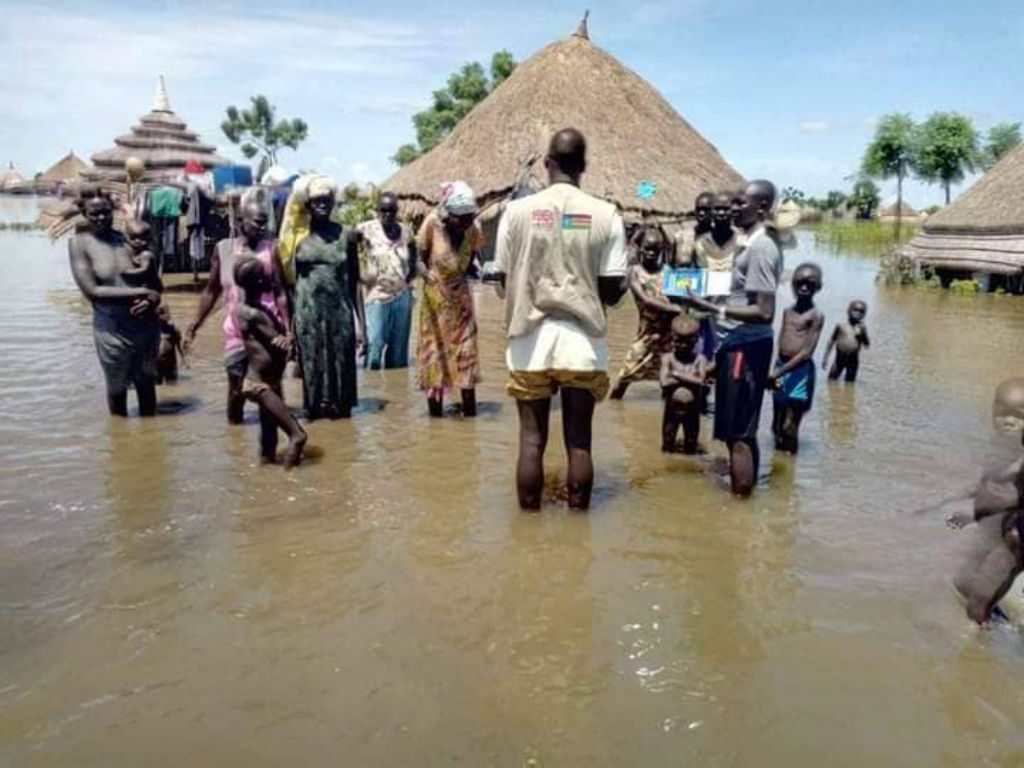
By Bida Elly David
Humanitarian Organisation MSF has reiterated difficulties facing them amid delivering humanitarian assistance to affected population in Upper Nile due to heavy flooding and violent conflict between armed factions.
The agency urged the parties to provide assurance of safety for humanitarian services.
Recently, the SPLM/A-IO breakaway factions of Kitgwang and Agwelek have turned to fight against one another due to disputes well known by them.
The fighting between the former allies of SPLM/A-IO Kitgwang Declaration has passively impacted the lives of the innocent civilians who are currently running shortage of medical services, feeding, and education as greater population are dislodged from their homes.
Despite number of efforts invested by the humanitarian organisations to render their aid services, access to deliver assistance to the affected population was difficult.
A statement extended to No.1 Citizen Daily Newspaper by Medicine Sans Frontiers (MSF) yesterday stated that the conflict has left many souls perished as tens of thousands of the population fled their homes.
The statement stated that Greater Fangak of Upper Nile stood at the worst position of the affected areas ever where organisations could not access for services.
The doctors without borders said that the Protection of Civilians site in Malakal has received 18,000 populations as latest arrival for accommodation on top of 34,000 populations being hosted as the situation intensified.
“The Protection of Civilians (PoC) site in Malakal is being inundated with new arrivals, with more than 18,000 people seeking safety in the camp. Prior to this, the PoC already hosted around 34,000, and the sudden surge of people is pushing services to the brink”.
“The hospital that MSF operates in the PoC has seen a sharp increase in emergency room consultations, including victims of violence,” it stated.
“Another 25,000 people have fled south to Old Fangak. So far, the MSF hospital in Old Fangak has received 71 wounded patients, some arriving with infections after it took up to a week to reach the hospital due to the insecurity and flooding”.
MSF however, noted that medical emergencies need to be referred to Malakal where there is surgical capacity. During the rainy season, this often requires transporting patients along the White Nile River – as flooding prevents planes from being able to land in Old Fangak – but insecurity along the Nile is now making this impossible.
The organisation further underscored that the initial fighting among the rivals transpired in Panyikang and Fangak Counties in July and escalated into real conflict by mid-August where armed groups intentionally targeted displacement Camp in Adidhiang inhabited by women and children.
“In September, armed groups intentionally targeted a makeshift displacement camp in Adidhiang, where mostly women and young children had sought refuge. Numerous people were killed in the attack and many more drowned in the floodwaters as they tried to escape,” MSF reported.
It further noted that recent clashes in Diel and Fashoda County have resulted in thousands more freshly displaced people.
“Some who fled said that they spent up to a week walking through swamps – often carrying elderly people and small children on improvised rafts of plastic sheeting – to arrive at various displacement camps,” it added.



